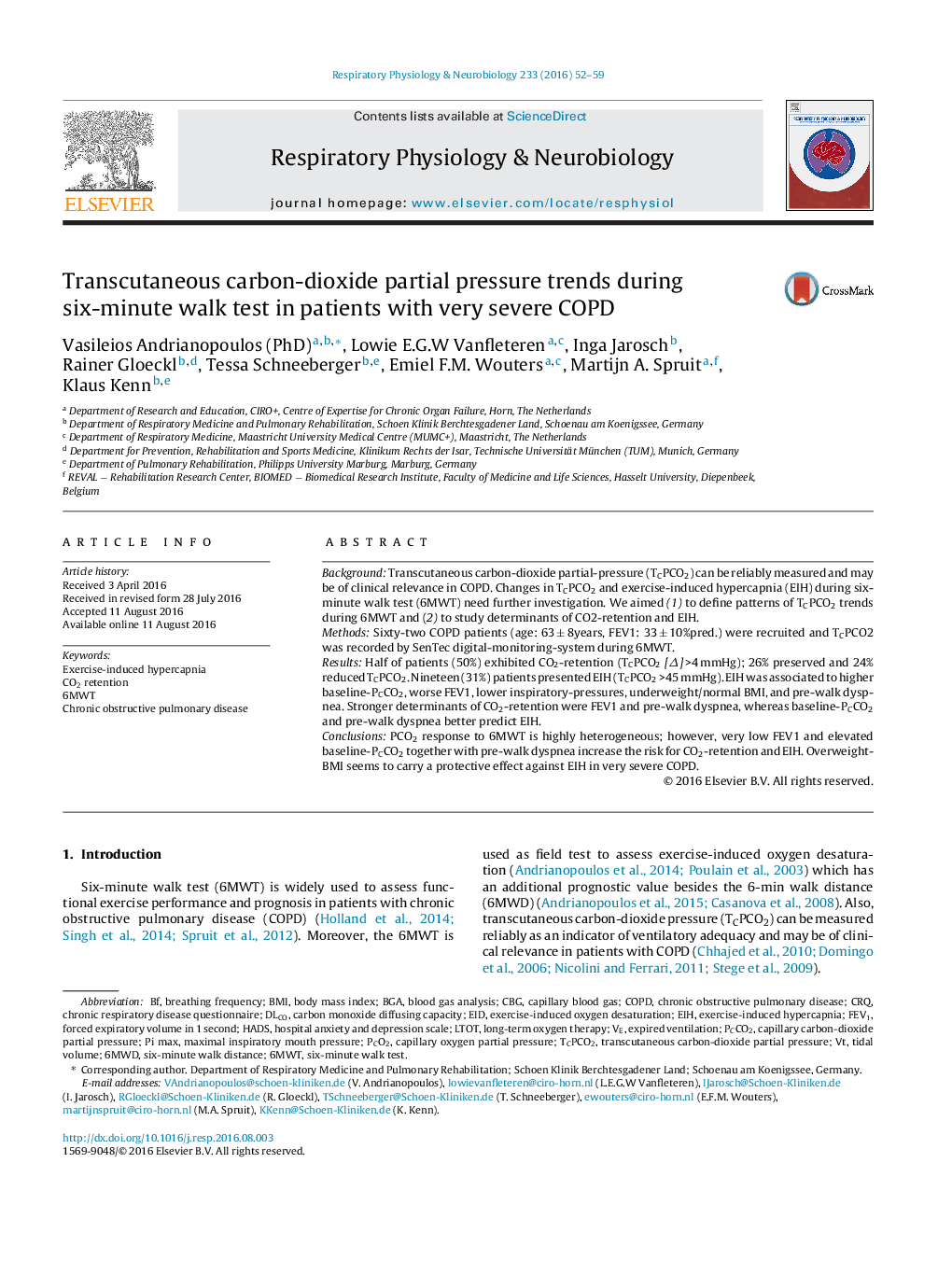| کد مقاله | کد نشریه | سال انتشار | مقاله انگلیسی | نسخه تمام متن |
|---|---|---|---|---|
| 2846624 | 1571297 | 2016 | 8 صفحه PDF | دانلود رایگان |

• TCPCO2 response to 6MWT is highly heterogeneous in patients with advanced COPD.
• CO2 retention (TCPCO2 increase of >4 mmHg) is related to worse airflow limitation (FEV1) and higher pre-walk dyspnea.
• EIH (TCPCO2 levels of >46 mmHg at exertion) during the 6MWT is associated with higher baseline-PCCO2 values (≥41 mmHg) and higher pre-walk dyspnea.
• Overweight/Obese BMI seems to carry a protective effect against EIH in very severe COPD.
• Monitoring of TCPCO2 during 6MWT might help to identify patients who need special attention regarding to EIH.
BackgroundTranscutaneous carbon-dioxide partial-pressure (TCPCO2) can be reliably measured and may be of clinical relevance in COPD. Changes in TCPCO2 and exercise-induced hypercapnia (EIH) during six-minute walk test (6MWT) need further investigation. We aimed (1) to define patterns of TCPCO2 trends during 6MWT and (2) to study determinants of CO2-retention and EIH.MethodsSixty-two COPD patients (age: 63 ± 8years, FEV1: 33 ± 10%pred.) were recruited and TCPCO2 was recorded by SenTec digital-monitoring-system during 6MWT.ResultsHalf of patients (50%) exhibited CO2-retention (TCPCO2[Δ] >4 mmHg); 26% preserved and 24% reduced TCPCO2. Nineteen (31%) patients presented EIH (TCPCO2 >45 mmHg). EIH was associated to higher baseline-PCCO2, worse FEV1, lower inspiratory-pressures, underweight/normal BMI, and pre-walk dyspnea. Stronger determinants of CO2-retention were FEV1 and pre-walk dyspnea, whereas baseline-PCCO2 and pre-walk dyspnea better predict EIH.ConclusionsPCO2 response to 6MWT is highly heterogeneous; however, very low FEV1 and elevated baseline-PCCO2 together with pre-walk dyspnea increase the risk for CO2-retention and EIH. Overweight-BMI seems to carry a protective effect against EIH in very severe COPD.
Journal: Respiratory Physiology & Neurobiology - Volume 233, November 2016, Pages 52–59